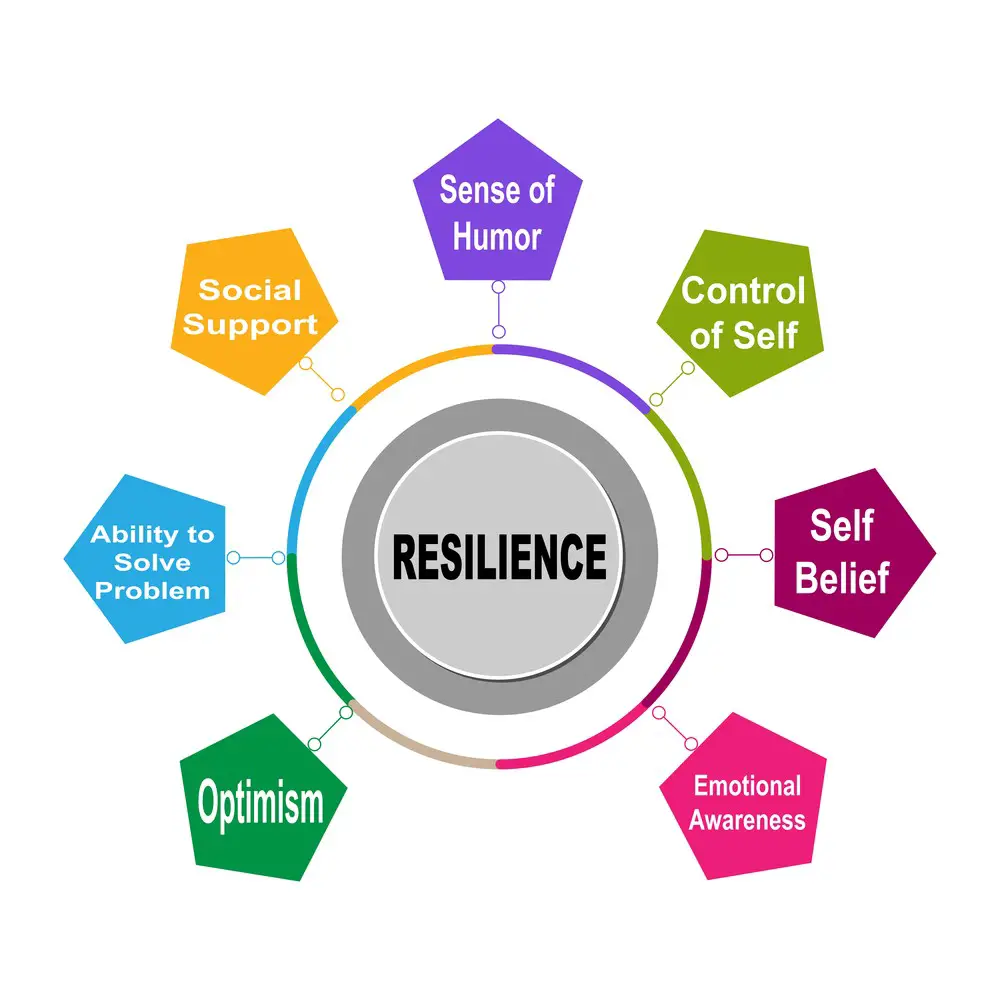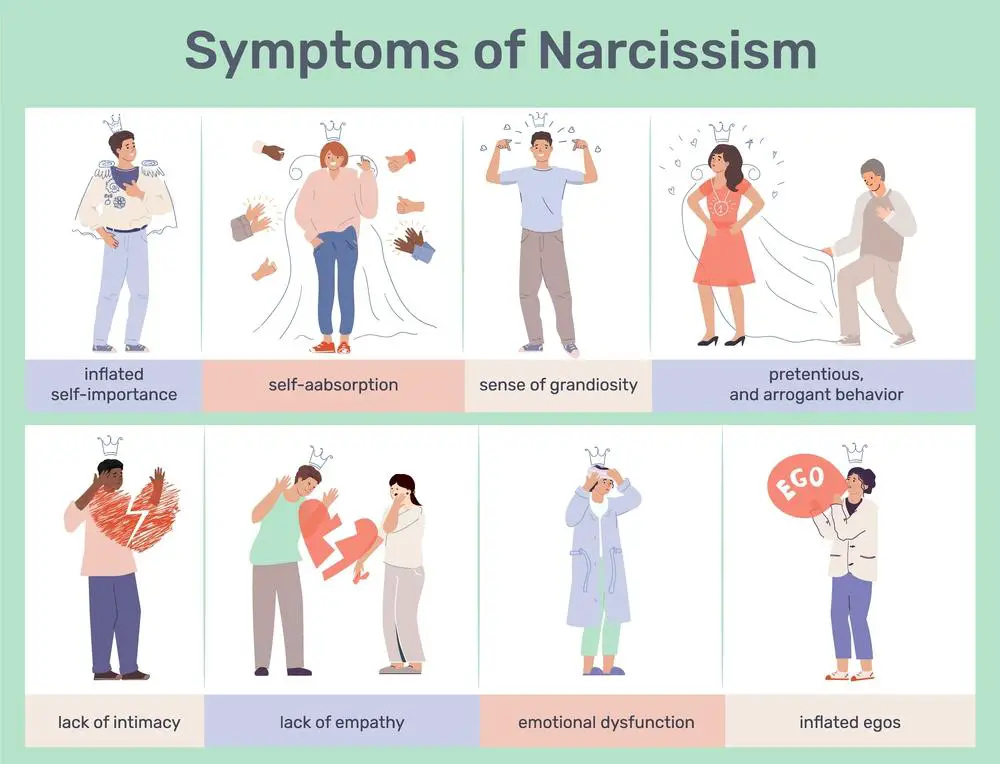As a BetterHelp affiliate, we receive compensation from BetterHelp if you purchase products or services through the links provided
Encountering people who appear self-centered or selfish has become a common occurrence in our daily lives. Although these two traits can seem similar, it is essential to differentiate between them when dealing with individuals who exhibit such behaviors. A clear understanding of both self-centeredness and selfishness can help cultivate healthier communication and relationships.
Self-centered individuals tend to focus primarily on their thoughts, emotions, and interests, often causing them to be unaware of others’ feelings and needs. On the other hand, selfish people are entirely consumed by their desires and seek to fulfill them, even if it means disregarding or harming others. While both behaviors can create strained relationships, understanding their distinctions will allow you to cope with and address these traits more effectively.
Key Takeaways
- Recognize the differences between self-centeredness and selfishness to improve communication and relationships
- Setting healthy boundaries and practicing self-care enables a balanced approach towards dealing with others
- Develop an understanding of personality disorders to manage better interactions with individuals who exhibit self-centered or selfish behaviors.
 Understanding Self-Centeredness
Understanding Self-Centeredness
Defining Self-Centered
Being self-centered means focusing primarily on one’s needs, wants, and feelings while neglecting the needs and emotions of others. It’s important to note that self-centeredness differs from being selfish or having a personality disorder like narcissism or histrionic personality disorder. While a self-centered person may still care about others, their desires tend to take precedence.
Signs of a Self-Centered Person
A self-centered person might exhibit the following behaviors:
- Dominating conversations: They tend to talk more about themselves and often interrupt others.
- Lack of empathy: They may have difficulty understanding or validating others’ emotions.
- Manipulative behavior: They might use guilt, blame, or other tactics to get their way.
- Frequent attention-seeking: The need for validation and praise is more pronounced in them.
Impact of Self-Centeredness
Self-centered behavior can negatively affect relationships and result in:
- Emotional neglect: Friends and loved ones may feel unseen and unheard due to the self-centered person’s focus on their issues.
- Unbalanced support: A self-centered friend might lean on you for help but fail to provide the same support in return.
- Depression or burnout: Being constantly overshadowed by a self-centered person can lead to feelings of worthlessness, and the imbalance in giving and receiving support can result in burnout.
Being aware of these impacts can encourage you to set boundaries and protect your mental health. While it’s essential to support our self-centered friends, remember to prioritize your well-being, too.
 Diving Into Selfishness
Diving Into Selfishness
Defining Selfishness
Let’s start by understanding what selfishness means. Simply put, selfishness is the act of prioritizing one’s own needs, wants, and desires above others. It’s not always bad to be focused on your well-being, but when it crosses a line and hurts those around you, that’s when it becomes problematic.
Key takeaway: Selfishness is when you prioritize yourself over others, negatively affecting relationships and well-being.
Characteristics of a Selfish Person
Here are some common traits you might notice in a selfish person:
- Lack of support: A selfish person may not offer their time or support to friends or family when needed.
- Manipulative behavior: They might use others for their gain and not consider the consequences of their actions.
- Neglect: Selfish people are more likely to neglect the needs and feelings of others.
Key takeaway: Watch out for signs of selfishness in others, such as lack of support, manipulative behaviors, and neglect.
The Consequences of Selfishness
It’s important to recognize that selfish behavior can lead to negative outcomes, such as:
- Strained relationships: When you’re selfish, your friends and family members may distance themselves from you to avoid the pain caused by your actions.
- Mental health issues: Being around a selfish person can lead to feelings of depression and burnout for those they constantly neglect.
- Loss of trust: Selfish behavior can erode trust in relationships, making it challenging to rebuild once broken.
Key takeaway: The consequences of selfishness can be severe, including strained relationships, mental health issues, and loss of trust.-
Differentiating Between Self Centeredness and Selfishness
When understanding self-centered and selfish behavior, it’s essential to know the distinctions between the two. This will help you manage your relationships, recognize your actions, and navigate issues that might arise daily.
Self-centeredness focuses on one’s needs, desires, and feelings without considering the impact on others. You might find that your thoughts revolve around your interests or how situations affect you. While this behavior isn’t ideal, it doesn’t necessarily mean you’re intentionally disregarding the feelings and needs of others. It could simply be a lack of awareness or emotional intelligence.
On the other hand, selfishness is when you intentionally prioritize your needs and desires above the well-being of others. This behavior can manifest in taking advantage of others, refusing to lend a helping hand, or keeping valuable resources for yourself. Selfishness is often driven by motives to protect oneself or gain personal benefits.
Here are a few key points to keep in mind when differentiating between self-centeredness and selfishness:
- Awareness: Self-centered individuals might not be aware of how their behavior impacts others, while selfish individuals actively choose to prioritize themselves over others.
- Intention: Self-centered actions can stem from a lack of empathy or understanding, while selfish actions are often driven by a conscious decision to prioritize one’s interests above others.
- Adaptability: A self-centered person might change their behavior if they become aware of the consequences, whereas a selfish person is more likely to remain consistent in their actions.
Here are some tips to help you recognize and address these behaviors in yourself and others:
- Practice empathy: Put yourself in others’ shoes to better understand their feelings, needs, and perspectives.
- Communicate openly: Talk to those around you about your feelings and encourage them to share their thoughts and concerns.
- Be self-aware: Reflect on your actions and motivations, and consider how they might affect the people around you.
- Set boundaries: Establish limits and expectations with others to ensure everyone’s needs are respected and met.
By understanding the differences between self-centeredness and selfishness, you’ll be better equipped to deal with these behaviors and work toward creating a more balanced, harmonious environment. Remember, improvement starts with awareness and a commitment to change.
 Healthy Boundaries and Self-Care
Healthy Boundaries and Self-Care
Understanding Self-Interest
Regarding self-awareness, it’s essential to understand that everyone has self-interests. It’s natural for you to have personal needs and desires. Recognizing your self-interest is critical to being empathetic toward others and prevents you from becoming self-involved or biased. By acknowledging your motivations, you can also nurture a compassionate relationship with yourself and others.
Key takeaway: Acknowledging your self-interests helps to build empathy and self-awareness.
The Role of Boundaries
Boundaries play a crucial part in maintaining healthy relationships. By setting limits on what you’re comfortable with and what you’re not, you not only protect your well-being but also show respect for your friend’s needs. Having clear boundaries can boost your support system, as it fosters trust and communication.
It’s important to remember that both self-centered and selfish people can struggle with maintaining healthy boundaries. The difference lies in how they perceive and handle these limits.
Key takeaway: Establishing healthy boundaries fosters trust and respect in relationships.
Self-Care vs Self-Serving Actions
Self-care refers to practices that help you replenish your energy, focus, and motivation. Some examples include taking a day of rest, practicing meditation, or setting aside time for hobbies. These actions prioritize your well-being without negatively impacting those around you.
On the other hand, self-serving actions are typically fueled by a selfish mindset. These behaviors prioritize your own needs at the expense of others, disregarding their feelings and well-being. It’s crucial to differentiate between self-care and self-serving actions to maintain a healthy balance in your life and relationships.
Key takeaway: Prioritize self-care instead of self-serving actions to preserve your well-being and relationships.
 Understanding and Dealing With Personality Disorders
Understanding and Dealing With Personality Disorders
When it comes to personality disorders, it’s important to recognize that these mental health conditions can greatly impact a person’s life and relationships. By understanding and dealing with these issues, you can support your loved ones and ensure their well-being.
Narcissistic Personality Disorder
Narcissistic personality disorder (NPD) is characterized by a strong sense of self-importance, extreme self-centeredness, and a need for excessive admiration. People with NPD may have difficulty empathizing with others and can be manipulative in order to get what they want. Some symptoms may include:
- An exaggerated sense of self
- A need for constant attention and admiration
- A sense of entitlement
Key takeaway: The first step in dealing with a narcissist is understanding that their behavior stems from a deep-rooted mental health issue, and empathizing with their situation can help build better communication.
Antisocial Personality Disorder
Antisocial personality disorder (ASPD) is another type of personality disorder that is characterized by a lack of empathy and disregard for others. People with ASPD may engage in manipulative behavior, often having difficulty sustaining relationships and experiencing anger or loneliness. Some symptoms may include:
- Persistent violation of the rights of others
- Repeated deceitfulness
- Lack of empathy
Key takeaway: Recognizing the signs of antisocial personality disorder can help you identify when someone may be struggling, and seeking professional help for the affected individual could lead to appropriate treatment and management of the condition.
Healthy Ways to Deal with Personality Disorders
No matter the personality disorder, there are several healthy strategies to help yourself or a loved one cope:
- Seek professional help: Consult with a mental health professional, such as a therapist or counselor, who is experienced in dealing with personality disorders.
- Practice self-awareness: Cultivate an awareness of your emotions and responses, and learn to identify triggers for unhealthy behavior.
- Embrace healing: Engage in self-care and healing activities, such as meditation, yoga, or journaling, to support emotional well-being.
- Empower yourself: Educate yourself about the specific personality disorder to understand its origins and effects on everyday life, and use that knowledge to help build healthier relationships.
Key takeaway: Implementing these strategies can improve mental health, encourage personal growth, and foster a support system for those dealing with personality disorders.
 Conquer the Chaos: Tips for Dealing with Self-Centered and Selfish Individuals
Conquer the Chaos: Tips for Dealing with Self-Centered and Selfish Individuals
Navigating relationships with self-centered and selfish people can be a minefield, but don’t worry—I’ve got some actionable tips that could turn the tide in your favor.
For the Self-Centered Individuals:
- Set Boundaries: Make it clear what you will and won’t tolerate. There is no need for fireworks; a simple, straightforward conversation can do wonders.
- Limit Exposure: Sometimes, the best offense is a good defense. Reduce the amount of time you spend with them when possible.
- Don’t Feed the Ego: Keep your compliments and flattery in check. Over-praising can encourage more self-centered behavior.
- Pick Your Battles: Not every discussion needs to turn into a debate. Sometimes, letting more minor things slide is the best strategy.
For the Selfish Individuals:
- Speak Up: Selfish people often aren’t aware they’re being selfish. Point it out respectfully when it happens.
- Be Direct but Diplomatic: Say what you must say, but avoid unnecessary confrontation. A calm demeanor can go a long way.
- Manage Expectations: Recognize that a selfish person won’t always meet your expectations and plan accordingly.
- Show, Don’t Just Tell: Sometimes a mirror is the best teacher. Model the behavior you’d like to see, whether sharing or taking turns in conversation.
For Both:
- Take Care of Yourself: Self-care isn’t selfish. When dealing with taxing personalities, put your well-being first.
- Seek Professional Guidance: Sometimes, you’ll need an expert’s perspective to deal with tricky personalities.
- Walk Away: If someone refuses to respect you or causes too much emotional turmoil, it might be time to cut ties.
Remember, standing up to self-centered or selfish behavior isn’t just good for you; it can set the boundaries that these individuals clearly need but may not recognize. So, be firm, be fair, and most importantly, be true to yourself. You got this!
Frequently Asked Questions
What are the key differences between being selfish and self-centered?
Being selfish means putting your needs and desires above others, even if it negatively impacts them. Self-centered individuals are also focused on their needs and desires, but they may not always be aware of how their behavior affects others. While selfishness is a deliberate choice to prioritize oneself, self-centeredness can sometimes come from a lack of awareness or empathy.
How does self-love differ from being self-centered?
Self-love is an essential component of a healthy mindset, as it involves cultivating confidence, self-esteem, and a positive relationship with oneself. On the other hand, being self-centered is an excessive focus on oneself, often at the expense of others. To distinguish the two, consider whether your actions support personal growth and healthy relationships or if they alienate and harm those around you.
What are common characteristics of a self-absorbed person?
Some common traits of a self-absorbed person include:
- Preoccupation with their own feelings, thoughts, and problems
- Difficulty listening to or empathizing with others
- A sense of entitlement and expectation for special treatment
- Frequent self-referencing in conversations
- Disregard for others’ needs or feelings
Can you be both selfish and a narcissist?
Yes, it is possible to be both selfish and a narcissist. Narcissism is a personality disorder characterized by an inflated sense of self-importance, excessive need for admiration, and lack of empathy for others. A narcissist may also be selfish, prioritizing their own needs and desires above others. However, not all selfish individuals are narcissists, as selfishness itself is a broader behavior that can manifest in many ways.
What causes people to be selfish and self-centered?
Numerous factors can contribute to selfishness or self-centered behavior, such as:
- Poor emotional intelligence or empathy skills
- Past experiences, traumas, or upbringing
- Fear of vulnerability or feelings of inadequacy
- Culture, societal norms, or values
Understanding the factors behind this behavior can help you empathize with others and develop strategies to manage your own tendencies.
Is there a difference between being self-centered and narcissistic?
While self-centeredness and narcissism share similarities, such as an excessive focus on oneself, there is a crucial difference. Narcissism is a personality disorder marked by an inflated sense of self-importance, a need for admiration, and a lack of empathy. Self-centered individuals may display these traits to some extent but don’t necessarily meet the criteria for a narcissistic personality disorder diagnosis.

Meet the Writer Behind the Words: Jacob Maslow
Hey, it’s me, Jacob Maslow. You might wonder, “Why should I listen to this guy?” Let me tell you, I’ve got firsthand experience with self-centered individuals that’d make your head spin. After a decade of living happily in two homes, my ex-spouse turned our lives upside down when she decided several months ago to cut off any communication between me and our kids completely. Despite court orders and a therapist’s success at reunification, she wouldn’t cooperate. Sound familiar?
I’ve also been on a long mental health journey. Lexapro? Check. Therapy? Double check—I’m a veteran and have recently joined BetterHelp. I also take soul-clearing, long daily walks to keep my head above water. When you’re dealing with narcissism, especially from someone so close, mental health upkeep is a full-time job.
- Why I’m Here:
- To give you some no-nonsense advice on dealing with selfish people
- To share coping strategies for mental health challenges
- To offer you hope: Yes, you can overcome this.
You could say I’m in the trenches alongside you. I write these articles as a therapy for myself, but to help you navigate these murky waters. I also run a legal advice site focused on custody and non-compliance issues. If you’re facing a stubborn ex who weaponizes your kids, I’ve got some tips that might help you out.
The struggle against self-centered behavior, both from others and the challenges it imposes on our mental health, is real—but not insurmountable. Stay strong and keep moving forward; you’re not alone in this.

- Breaking the Silence: Why Men’s Mental Health Matters More Than Ever - April 15, 2025
- How to Transform a Home’s Patio Space into a Relaxing Space - March 23, 2025
- 5 Strategies to Use a Cell Phone to Help Manage Your Stress - March 23, 2025
This site contains affiliate links to products. We will receive a commission for purchases made through these links.


 Understanding Self-Centeredness
Understanding Self-Centeredness Diving Into Selfishness
Diving Into Selfishness Healthy Boundaries and Self-Care
Healthy Boundaries and Self-Care Understanding and Dealing With Personality Disorders
Understanding and Dealing With Personality Disorders Conquer the Chaos: Tips for Dealing with Self-Centered and Selfish Individuals
Conquer the Chaos: Tips for Dealing with Self-Centered and Selfish Individuals
